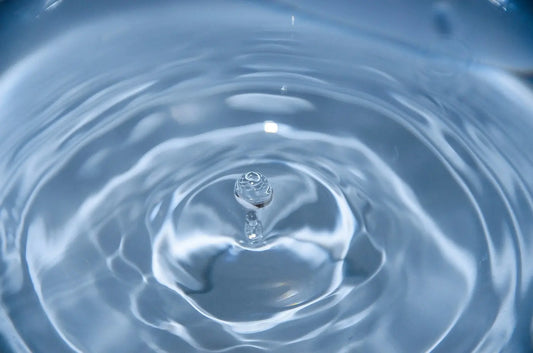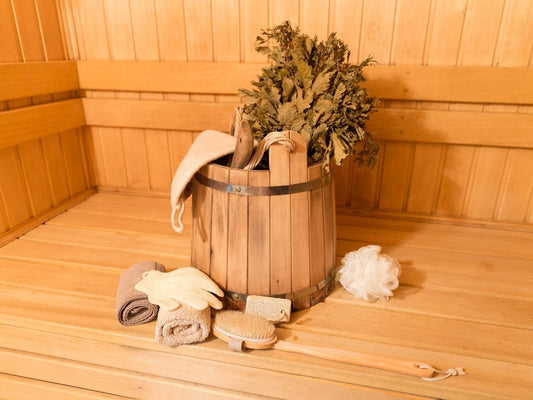Do you assume dehydration is something that only happens during the summer months? If so, think again. Dehydration can happen in the winter, too. In fact, you might even be more prone to it when the weather cools down. We’re here to break it down for you. Let’s chat everything you need to know about cold weather dehydration, from why it happens and what it looks like, to how to combat it.
Winter Dehydration Facts

At first, it might seem shocking that you’re more likely to get dehydrated during winter. However, when you consider these facts about why dehydration happens when it’s cold outside, it’ll all start to make sense:
Suppressed Thirst
When it’s cold outside, most people feel less thirsty than they do during the warmer months of the year. Some research even shows that you feel 40 percent less thirsty when temperatures drop [1].
When you’re exposed to cold temperatures, your blood vessels constrict. This pushes blood away from your skin and closer to the body’s core in an effort to preserve heat. As a result, the brain has a harder time detecting dehydration. It’s also less likely to release hormones that stimulate thirst [2].
There’s also the fact that cold water (which is what most people turn to when they need a drink) doesn’t sound as appealing when it’s also cold outside.
Increased Respiratory Losses
You know how you can see your breath when the weather gets cold? Did you know that you’re actually seeing water leave your body and evaporate? Every time you breathe out, you lose water. This is known as respiratory water loss.

During the winter, when the air is drier, your respiratory water-loss increases. These losses are even more significant when you’re active.
If you’re going skiing, going for a jog, or even just walking outside, you’ll lose more fluid than you would if it was warmer and more humid outside. That’s another reason why dehydration is more common when the weather is cold, and all the more reason to keep hydration top of mind in the winter.
Faster Sweat Evaporation
When you’re outside and the temperature is warm, it’s pretty easy to tell when you’re sweating. This is a pretty obvious clue that reminds you to drink more water to replenish the fluids and electrolytes you’re losing.
During the winter, though, you might not notice sweat as easily. It evaporates faster when the air is dry. It might even evaporate before you even realize you’ve been sweating. If your sweat evaporates before you can spot it, you might not be as prone to reach for water as you would during the warmer seasons. This could lead to you becoming dehydrated more easily.
More Layers of Clothing
When it gets cold outside, you naturally start adding extra layers, right? First it’s a jacket, then it’s a scarf and gloves, and before you know it, only your eyes are showing.
These extra layers keep you nice and toasty. They might also cause you to sweat more often. When you sweat more, you lose more fluids and electrolytes [3]. As you bundle up to go out for a walk or to hit the slopes, you need to also make a plan for how you’re going to rehydrate yourself. It might feel cold when you first walk out the door, but you’ll warm up and start breaking a sweat before you know it.
Winter Dehydration Symptoms
Remember that dehydration is an all-seasons occurrence, and is something not to overlook in the colder months. However, winter dehydration does look different than summer dehydration, and you may not notice the common signs of dehydration like extreme thirst, or be reminded to drink water because of the hot temperatures like you would in the summer. Keep an eye out for some of the following that could be signs you’re becoming or are dehydrated:
Dizziness
Dehydration limits blood flow and makes it less efficient. This means your brain is not getting as much oxygen as it needs. A lack of oxygen being delivered to the brain can cause you to feel dizzy or lightheaded.
Dehydration can actually cause confusion and affect your cognitive functioning. Your memory might not be as good as it normally is, or you might struggle when it comes to solving problems [4].
Headaches
When you’re dehydrated and your brain is getting less blood and oxygen delivered to it, your brain actually shrinks. This shrinkage triggers the pain receptors located around the brain, which can result in a headache [5].
Fatigue
If you’re dehydrated, you will likely find that you feel tired more often. As with a lot of symptoms associated with dehydration, this has to do with a lack of blood flow to the brain. Decreased blood flow and oxygen can cause you to feel less alert. You may also have trouble focusing at work or school.
Chapped Lips
The dry winter air pulls moisture from your body, including from your lips. If you’re dehydrated during the winter, you’re going to be more likely to deal with dry, chapped, or cracked lips. While not the biggest deal regarding dehydration symptoms, chapped lips are definitely a frustrating (and possibly painful) one.
Dry Skin
Another frustrating symptom is dry skin. The dry air will pull moisture from your skin, too, and could leave you feeling uncomfortable and itchy.
Changes in Urine Color and Production
You might also notice changes in your urine color and output as well if you’re dehydrated. This is one of the easiest signs to pick up on, so take note of it if you have concerns about your fluid levels. When you’re dehydrated, your urine gets darker in color. You also produce less because your body is holding on to the fluids it has left until it knows more are coming.
How to Combat Winter Dehydration
Winter dehydration is common, but there are also lots of ways that you can combat it. The following are some of the most effective steps to take to help you stay hydrated when the weather is cold:
Set a Daily Fluid Goal
Sometimes, it helps to have a specific number attached to your daily hydration. Don’t just say, “I’m going to drink more water.” Give yourself a certain number of cups of water to drink per day.

Everyone’s water needs are different. A good starting number to shoot for is 15.5 cups each day for men and 11.5 cups each day for women [6]. If this feels like way too much, start with a smaller goal. You’ll still likely be getting more fluids than you were before, and you can always increase gradually over time. And if you ever have any questions about how many fluids you should be getting, you can also always chat with your primary care provider.
Set Reminders to Drink
During the winter, you’re less thirsty, so you might find that you forget to drink regularly. An easy way to avoid this problem is to create reminders for yourself.
Some people like to set alarms on their phone or watch so they remember to drink. Others place sticky notes around their house as a more visual reminder. One other suggestion is to get a clear reusable water bottle and create markings on it so that you drink a certain amount at regular intervals throughout the day. Draw a line indicating how much you want to drink by 10 am, then another line indicating how much you want to drink by 12 pm, etc.
Drink More Warm Liquids
You don’t have to drink cold water to hydrate yourself. Warm liquids count, too. You can make herbal tea, for example, or hot cider.
Looking for something hydrating that also contains electrolytes and vitamins? Grab a mug of our Hot Apple Cider Immunity, which has essential electrolytes for hydration and vitamins to support your immune system.
Don’t Forget About Electrolytes
Speaking of electrolytes, make sure you’re factoring those into your daily hydration goal. Electrolytes help you to maintain proper fluid balance, proper blood pH, and proper muscle function.
It’s important to consume plenty of fluids, but you also need to make sure you’re consuming enough magnesium, sodium, and potassium. Without these electrolytes, you could still end up experiencing symptoms of dehydration like headaches and muscle cramps [7].
If you need an easy solution for a lack of electrolytes, try using hydration powders (like Hydrant!). Toss a packet into your water to meet your daily electrolyte needs, combat dehydration, and make your drink a little tastier.
Reduce Alcohol Intake
Finally, consider reducing your alcohol intake. This might seem hard during the winter since a lot of us have a tendency to turn toward comforting adult beverages like spiked hot cider or red wine when the weather’s cold.

If you’re worried about dehydration, though, alcohol is the last thing you need. Alcohol is a diuretic, which means it causes your body to lose fluids. For every 200 milliliters of alcohol you consume, you actually lose 320 milliliters of fluid [8]. It’s not hard to get dehydrated when you’re drinking a lot of alcohol on a regular basis. So if you choose to enjoy a glass of wine in the evenings to unwind, besure to replenish your hydration levels. One trick our customers suggest is drinking two packets of Hydrant before bed but after drinking alcohol to help wake up feeling refreshed and hydrated in the morning!
Stay Hydrated All Winter Long
Don’t forget to keep yourself hydrated just because winter is here. Building on a foundation of hydration can help keep you ahead of dehydration and kick off a great wellness routine to practice all winter (and all year) long.

















